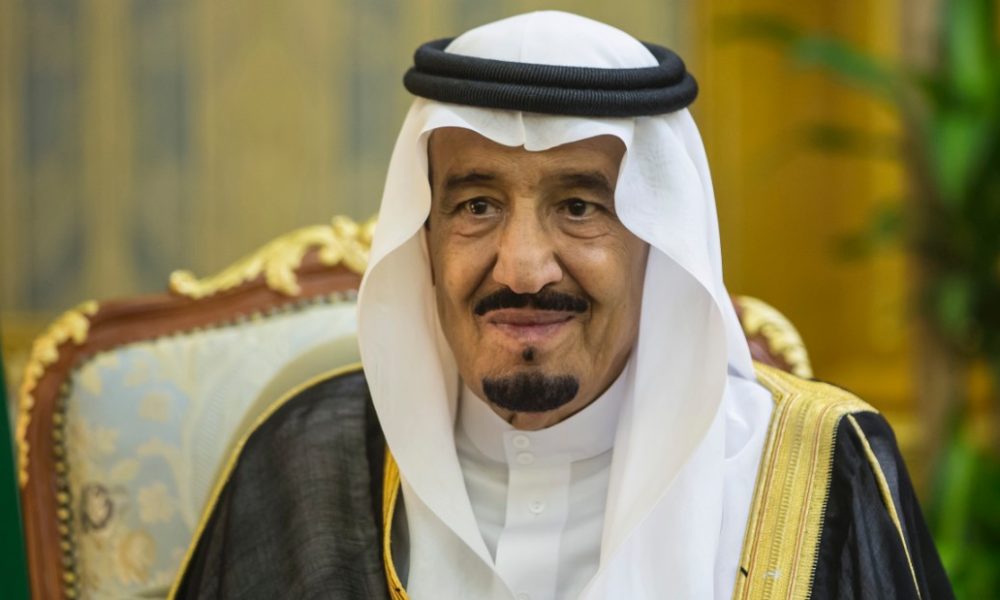Finance
G-7 Faces Saudi Resistance on Russian Asset Seizure Plans

Saudi Arabia has subtly cautioned the Group of Seven (G-7) nations against seizing nearly $300 billion of Russia’s frozen assets, sources familiar with the discussions have revealed.
This move by Riyadh aimed at preventing the utilization of these funds to support Ukraine and shows the kingdom’s strategic positioning and impact on global financial decisions.
Earlier this year, Saudi Arabia’s finance ministry communicated its concerns to several G-7 counterparts, indicating that any direct expropriation of Russia’s assets could lead to significant financial consequences.
The kingdom hinted that it might sell off some of its European debt holdings, particularly targeting debt issued by the French treasury, if the G-7 proceeded with the asset seizure.
While Saudi officials later denied making explicit threats, the message was clear enough to influence the ongoing deliberations.
The G-7, in May and June, explored various options regarding the Russian central bank’s frozen funds.
Despite a push from the United States and the United Kingdom for more aggressive measures, including direct asset seizure, the group eventually settled on a compromise.
They agreed to utilize the profits generated by the frozen assets, estimated to be between €3 billion and €5 billion annually, to provide around $50 billion in fresh aid to Ukraine, while leaving the principal amounts untouched.
Saudi Arabia’s position was not solely influential in its direct communications but also resonated with some eurozone member nations.
These countries expressed concerns that seizing the assets could undermine the euro and set a worrying precedent that might affect them in the future.
The kingdom’s stance highlighted fears that such a move could trigger a chain reaction, prompting other nations to follow suit, potentially destabilizing global financial markets.
A Saudi official suggested that the government’s communications were intended to outline potential consequences rather than to issue direct threats.
Nonetheless, the kingdom’s vast holdings in European debt, including tens of billions of euros in French bonds, were sufficient to cause alarm among European officials.
The motives behind Saudi Arabia’s intervention remain a subject of speculation. Some analysts believe the kingdom acted out of self-interest, wary that a precedent of asset seizure could eventually be used against it or other nations.
Others suggest that Riyadh’s actions reflect its complex geopolitical balancing act. While Saudi Arabia maintains a strategic alliance with Russia through their leadership of the OPEC+ oil cartel, it has also been cultivating diplomatic ties with Ukraine.
President Volodymyr Zelenskiy’s recent visit to the kingdom and his meeting with Crown Prince Mohammed bin Salman underscored these evolving relationships.
Regardless of the underlying reasons, Saudi Arabia’s influence in this matter has highlighted its growing clout on the international stage.
Under the leadership of Crown Prince Mohammed bin Salman, the kingdom has increasingly positioned itself as a key diplomatic player, seeking to mediate in global conflicts and shaping major financial decisions.
The G-7’s eventual decision to refrain from directly seizing Russia’s assets reflects the intricate dynamics at play and the challenges of securing unanimous support for bold measures within the international community.
As the group finalizes the mechanics of its aid plan for Ukraine, the influence of nations like Saudi Arabia on global financial policies is becoming ever more apparent.
In the meantime, Saudi Arabia continues to manage its extensive foreign reserves and assets with strategic caution.
The kingdom’s central bank holds $445 billion in net foreign reserves, and its sovereign wealth fund boasts nearly $1 trillion in assets.
While the bulk of these holdings are in US dollars, the kingdom’s sizable investments in European debt ensure it remains a significant player in global financial markets.